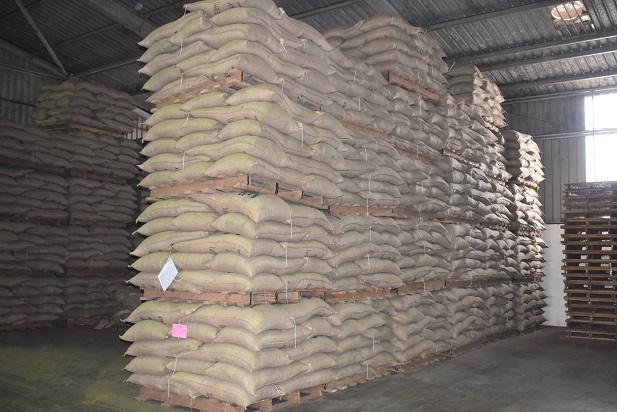Kenya has ended a five-year slide in foreign direct investment after it attracted deals worth Sh107 billion in 2022, but was still beaten by Uganda, Tanzania and Ethiopia in the race to attract investors.
Findings of an annual survey by the UN Conference on Trade and Development (UNCTAD) suggest that foreign direct investment flows into Kenya made an upturn in 2022 after five consecutive drops on increased deals in renewable energy but still trailed regional peers.
UNCTAD’s World Investment Report 2022 estimates the FDIs amounted to $759 million (about Sh106.96 billion under the prevailing exchange rate of Sh140.92 to the US dollar) from $463 million the year before.
The 63.93 percent jump in FDI inflows, the second fastest among major economies in Africa after Egypt, was the first expansion since 2017 when the flows rose 23.27 percent to $1.4 billion, according to UNCTAD.
The FDI flows had been on a downward trend for four years in a row through 2021 when they hit the lowest levels since $259 million in 2012.
The UN body has not disclosed the specific projects, which attracted foreign investments last year, but has broadly attributed the growth to a “range of policy interventions to mobilise resources and investment within the renewable energy sector”.
Kenya’s renewable energy sector, which accounts for about 90 percent of the country’s power needs, has become a magnet for foreign investors looking for climate change mitigation projects.
The deals have largely been focused on geothermal and wind power projects, with interest in solar energy rising fastest in recent years.
UNCTAD listed Kenya among five countries on the continent — alongside South Africa, Egypt, Nigeria and Zambia — which accounted for about 40 percent of greenfield projects last year.
Ethiopia, which partially opened up its telecoms sector to foreign investments, continued to control FDIs in Eastern Africa’s region despite the inflows falling 13.83 percent to $3.67 billion (Sh517.18 billion) last year.
“Ethiopia implemented income tax exemption for investors from the date of obtaining a business license or expansion permit and allowed investors to import capital goods, construction materials and motor vehicles free from customs duties,” UNCTAD wrote.
“Ethiopia was the largest recipient of FDI in the [Least Development Countries] group, with $3.7 billion – a 14 percent decrease from 2021.”
Inflows into Uganda were also ahead of Kenya’s despite growing at a slower pace of 38.73 percent to $1.53 billion (Sh215.61 billion).
Uganda’s FDIs were largely driven by the ongoing development of Lake Albert oil field in a joint venture with China National Offshore Oil Corporation and the Uganda National Oil Company for a forecast $6.5 billion and construction of the 1,440-kilometre crude oil pipeline, which extends to Tanzania, for projected $3.5 billion on completion.
Tanzania’s inflows rose modestly at 7.55 percent to $1.11 billion (Sh146.42 billion) largely on 60 percent growth in greenfield project investments.
The UNCTAD data shows the stock of FDIs in Kenya – total accumulated investments over the years – increased 7.25 percent to $11.23 billion (Sh1.58 trillion) last year from $10.47 billion in the prior year.
The survey largely focuses on greenfield investment in selected industries, project finance in infrastructure and production activities for large multinationals.
Analysts at Economist Intelligence Unit wrote in a report earlier in the year that Kenya’s renewable energy potential is still a major attraction for international investors.
“The main weaknesses in Kenya’s electricity sector are the parastatal firms responsible for distribution (Kenya Power) and transmission (Ketraco),” an EIU economist wrote in a report published in March.
“Kenya Power—which handled both functions until Ketraco was spun off in 2008 as a separate entity—is the most vulnerable, given frequent government interference, alongside corruption and crime (including illegal connections), leading to heavy system losses, weak financial performances and debt accumulation.”
President William Ruto has indicated Kenya was also keen to attract big-ticket foreign investments into the ICT sector. He announced in March that Kenya will drop the rule under the National ICT Policy for foreign firms to cede 30 percent of shareholding to domestic investors, a rule he said had made it impossible for large corporations to set up in Kenya.
“This position is untenable and has made it impossible for large corporations to invest in Kenya. We will review this position and remove this requirement to facilitate greater investment in our ICT sector,” Dr Ruto said on March 30.
“Additionally, our data protection law is aligned to support robust growth in data storage.”
His predecessor Uhuru Kenyatta administration, in which Dr Ruto served as deputy, had raised the threshold of domestic ownership for ICT to 30 percent from 20 percent which had been set by the Mwai Kibaki regime in 2008.
Dr Ruto said he was convinced to review the more- than-a-decade-long policy after Amazon Web Services – a unit of the US e-commerce giant Amazon, which provides cloud-computing platforms to individuals, companies and governments – made it clear that it will only invest in Kenya if and when the rule is dropped.
“I was persuaded by a good gentleman from Amazon Web Services that it was impossible for Amazon to cede 30 percent equity to any entity they didn’t have any business relationship with. And as a result, they were holding their investment in our country,” Dr Ruto said.
-Business Daily





